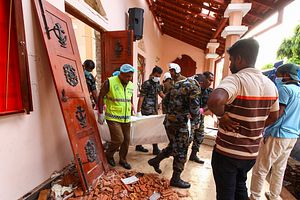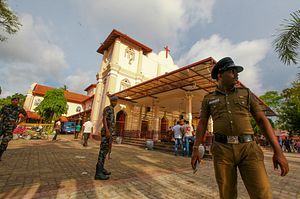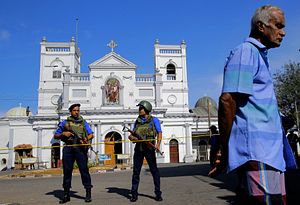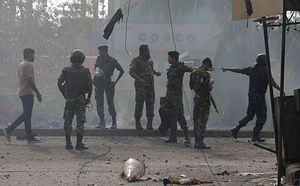April 21 was a bloody Sunday in Sri Lanka. A series of bombings killed at least 290 people, including at least 39 foreigners. About 500 others were wounded in the blasts. The attacks, timed for Sunday services on the Christian holiday of Easter, seemed designed to inflict the highest number of casualties possible on Sri Lanka’s minority Christian population.
According to the most recent statements from Sri Lanka’s government, on April 21 seven suicide bombers conducted near-simultaneous attacks on three churches and three luxury hotels in Colombo, Negombo, and Batticaloa. One bomber each attacked the Cinnamon Grand and Kingsbury hotels and St. Anthony’s Shrine in Colombo; St. Sebastian’s Church in the city of Negombo; and Zion Church in the city of Batticaloa. Two attackers were involved in the explosions at the Shangri-La Hotel in Colombo. All seven attackers were Sri Lankan citizens linked to the local militant group National Thowfeek Jamaath, a Sri Lankan government official said.
Fear continued to grip Sri Lanka as additional bombs were discovered over the next day. An explosive device was found and defused late Easter Sunday on an access road to the international airport near Colombo and on Monday police found three bombs inside a van parked outside St. Anthony’s Shrine in Colombo. The bombs in the van detonated while police attempted to defuse them, but no injuries were reported.
Sri Lanka’s President Maithripala Sirisena has given the military sweeping war-time powers to arrest and detain suspects following the Easter Sunday bombings. Sirisena’s office announced late Monday that the measure would take effect at midnight. In addition, a government curfew was to begin at 8 p.m.
On Monday, armed security personnel stood guard on street corners in central Colombo that were largely deserted, with most shops closed.










































